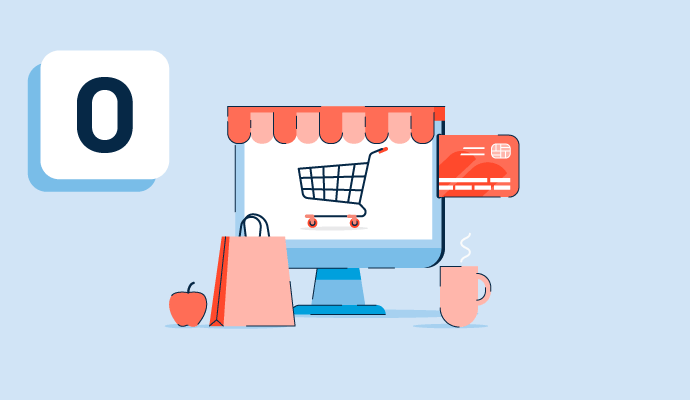What are online payments?
Online payments refer to the electronic exchange of currency through the internet. These payments usually consist of the transfer of monetary funds from a customer's bank or debit or credit card account, into the seller's bank account, in exchange for products or services. These funds can come directly from a customer's credit card or checking account, or from an online payment system that is linked to both the buyer and seller's bank accounts.
Online payments are used by buyers of goods and services, and the sellers of those goods and services. Several steps occur with the funds when they are transferred and received, especially between the two parties, that often require different types of software to successfully facilitate the transaction. The typical steps are below:
- Online purchase is made: A customer (buyer) provides the necessary information (debit or credit card, checking account information, etc.) to pay for goods or services. This data is then sent to a payment processing software or payment gateway.
- Information is encrypted: The payment gateway encrypts the payment details, such as the customer's name, address, and bank account info, which provides a level of security to make it more difficult for this info to be stolen.
- Details are verified: After the transaction data is encrypted, the information is sent to a payment processor to ensure that the transaction is valid. Once the transfer is verified, it sends the info to the buyer’s and seller’s banks.
-
Funds are approved: Assuming there are no red flags from the payment gateway or processor, the banks authorize the transaction. There are, however, several reasons as to why a transaction might not be approved by either bank:
- Insufficient funds
- Frozen account status
- Invalid credit card number or expiration date
- Transaction limits
- The card has been reported lost or stolen
- The address does not match the card
- Invalid Card Code Verification (CCV)
- Funds are requested: After the funds and corresponding transfer are approved, the payment processor requests the funds to be sent from the buyer's source of funds to the seller's bank account.
- The seller receives funds: The transfer of funds is completed and the purchase price has been sent from buyer to seller.
Types of online payments
- Credit cards: This is a payment issued from a financial institution that lends money to the cardholder, which allows them to purchase products and services online. Using credit cards for purchases is a popular type of online payment because the buyer usually has little to no liability for fraudulent charges, and most sellers accept this type of payment.
- Debit cards: Using debit cards (sometimes referred to as check cards or bank cards) for online purchases deducts the price directly from the user’s bank account. Similar to credit cards, the purchaser is often protected from unauthorized charges, and debit cards are widely accepted online.
- Third-party payment services: These online and mobile services help facilitate the sending and receiving of payments online between buyer and seller. Once a bank account is attached to a third-party payment service, transactions can often be made via mobile phones, tablets, smartwatches, and within apps.
- Electronic checks: This form of online payment (sometimes referred to as eChecks or ACH) deducts cash from a checking account, which eliminates the need for the buyer to write a paper check or the seller to deposit it. Electronic checks require the payer’s name, checking account routing, and account number, as well as the amount of the payment.
- Bank transfers: A bank transfer is similar to the debit card method because it transfers funds directly from one bank account to another. The difference with a bank transfer is that a physical debit card is not needed, providing an even faster and more secure form of payment.
Benefits of using online payments
Online payments provide both the buyer and seller with many benefits, such as security, efficiency, convenience, and contactless options.
- Security: Online payment options use encryption to protect consumer information and ensure data and funds are transferred securely from buyers to sellers. These safety protocols also decrease the chance of personal information being stolen.
- Efficiency: Payments made online are efficient because they are fast, sometimes instantaneous, and don’t have any constraints, such as distance, time, or location.
- Convenience: Vendors who accept online payments are providing a convenience that allows their customers to easily pay for goods or services, which improves the buying experience. If the vendor accepts credit card payments, the customer can buy goods on credit and pay later. Payments can also be made from anywhere at any time, eliminating the need to go to a bank or another financial institution.
- Contactless option: Contactless online payments allow buyers to pay for items by simply holding a smart device near a terminal that processes the transaction and transfers the funds to the seller via the internet. Customers can also make payments using QR codes or one-time passwords (OTP), both of which eliminate the need for human touch.
Software used to facilitate online payments
Depending on what type of online payment method is being used, there are several software categories that both buyers and sellers can benefit from that help facilitate the sending and receiving of funds for online purchases.
- Payment gateways: Payment gateways automate the payment transaction between shopper and merchant, securely transmitting transaction information to banks. E-commerce businesses depend on payment gateways to protect customer information via encryption and ensure their information is passed securely, from customer to merchant to the payment processor.
- Payment processing software: Payment processing software provides businesses with the means to process multiple types of business-to-business (B2B) payments. Companies use this type of software to manage payments received from business customers and made to suppliers.
- Installment payments software: Installment payment software facilitates a business’ ability to offer its customers the option to purchase an item over time through a set number of regular payments.
- Payment analytics software: Payment analytics software tracks online payments for e-commerce or subscription-based businesses. This type of software consolidates payment data from multiple sources to monitor customer payments.
- Payment card issuance software: Payment card issuance software helps businesses and financial institutions generate physical and virtual payment cards. While banks issue payment cards for their customers, companies use this type of software to generate cards for their employees.

Nathan Calabrese
Nathan is a Senior Research Analyst at G2 focusing on finance and accounting software and their respective markets. Coming from the world of finance, Nathan understands and is familiar with the importance of finance/accounting software, and the complexities, struggles, and nuances that come with them. He has over 15 years of analytical experience in industries ranging from health care and transportation logistics to food service and software. Nathan received his MBA in finance and international business administration from the University of Illinois, Chicago, and his B.S. in production and operations management from California State University, Chico.

